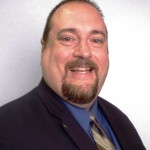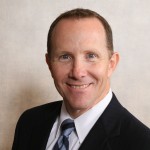Working in the public relations field, promoting our clients or organizations is the root of what we do. We leverage Twitter, blogs, networking and traditional media to garner the highest praise for our client. When it comes to promoting ourselves for a better position, a higher salary or maybe even our first job, new PR professionals may come up short since we’re used to working behind the scenes.
The PRSA New Professionals Section wants to answer those burning questions you have about how to network effectively, how to stand out in a saturated job candidate pool and how to continue progressing in your PR career. This Tuesday, October 25, the New Professionals Section will be hosting its first Tweetchat with the authors of our July Summer Book Club book, “Be Your Own Best Publicist: How to Use PR Techniques to Get Noticed, Get Hired and Get Rewarded at Work”. Jessica Kleiman and Meryl Weinsaft Cooper will be live Tweeting at 7:15 p.m. EST with the PRSA New Professionals Section.
How to Join the Conversation
We will be posing questions from the PRSA New Professionals Section handle, with Kleiman and Weinsaft Cooper providing insight from their handle. You can follow both @PRSANewPros and @BestPublicist on Twitter, or simply monitor the #npchat hashtag to see what the whole Twitterverse is saying.
Didn’t get a chance to read the book? No worries. Read Blog Co-Chair Diahnn Henderson’s discussion of the book to get a preview of the advice you’ll gain during the chat.
Don’t miss this opportunity to hear from two experts in PR, publicity and personal branding and make yourself indispensable to your current or future employer! Follow #npchat with the New Pros on Tuesday night!
Our featured participants:
Jessica Kleiman is currently VP-public relations for Hearst Magazines, one of the world’s largest publishers of monthly magazines. A graduate of University of Michigan with a BA in Communication, she started her career at a magazine publicity firm and then served as director of PR at The Knot, a wedding media company. In 2011, Kleiman was nominated as “Publicist of the Year” by PR News. She lives in Brooklyn, NY with her husband and daughter and enjoys posting words she finds funny on Twitter, Facebook and her blog, Funny Word of the Day.
Meryl Weinsaft Cooper is a co-founder and principal of Allen/Cooper Enterprises, a marketing, exhibitions and events company with a focus on art and lifestyle brands. Previously, as managing director of the DeVries Public Relations‘ Home & Lifestyle division and as SVP-Partner at LaForce+Stevens, she led programs for a variety of hospitality and consumer brands including Veuve Clicquot, Belvedere Vodka, Pepperidge Farm, Samuel Adams Beer, New Amsterdam Gin and Ecco Domani Wines. A graduate of Ithaca College’s Park School of Communications, her PR experience includes stints in art, music and entertainment, including time at the Screen Actors Guild’s New York office. She lives in Brooklyn, NY with her husband and dog, and spends her spare time writing and producing films as well as seeking out the best culinary, travel and art experiences, which she documents in her blog, Searching for Jake Ryan.
Both authors are contributing bloggers on Forbes.com’s Work in Progress section.


